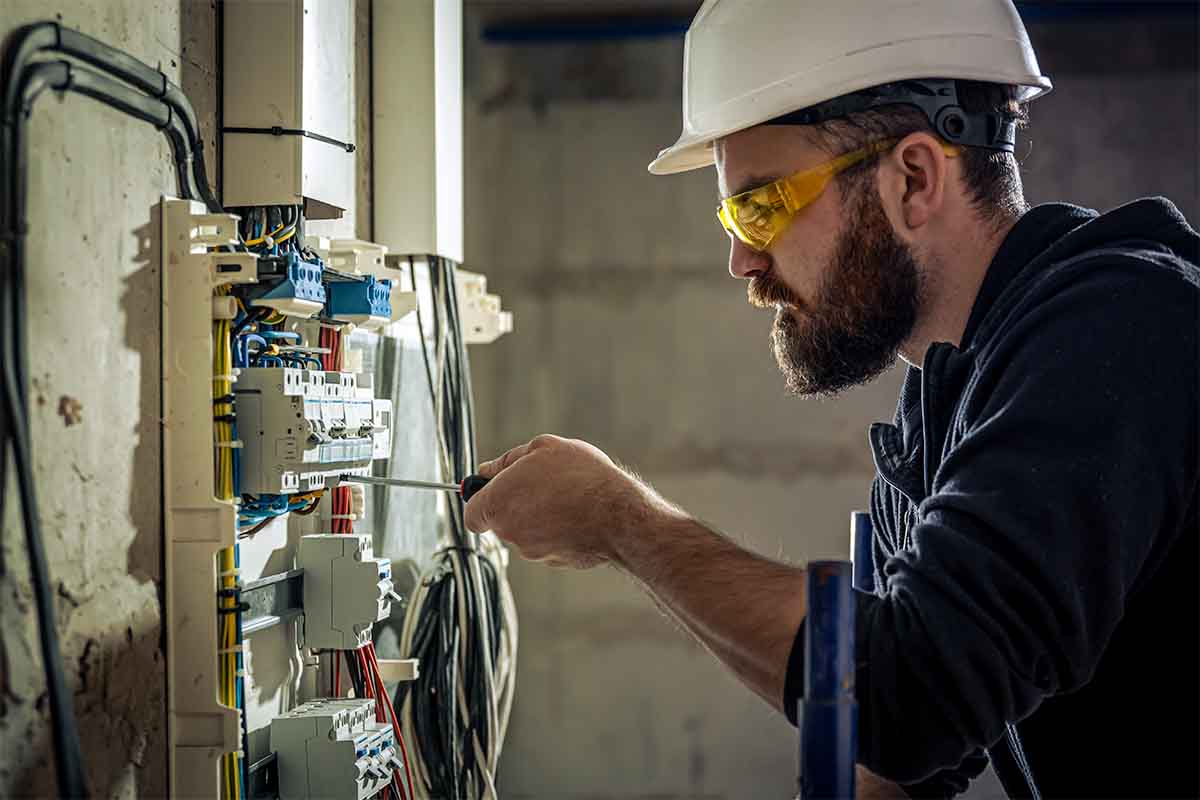Electrical Safety Toolbox Talk

Electricity can be a powerful tool, but it can also be very dangerous. In order to stay safe while working with electricity, it is important to know the hazards and how to avoid them. Give your employees an electrical safety toolbox talk that will provide an overview of some of the most common electrical hazards, as well as tips for staying safe when working with electrics.
- There were 126 electrical fatalities in 2020
- In 2020, 5.3% of all electrical incidents were fatal
Prevent the shock of a shock

Why is Electrical Safety important?
Electrical safety is important because it can prevent workplace fatalities or injuries. For example, workers can be electrocuted. Alternatively, if a worker is shocked by electricity, they could fall and injure themselves.
Additionally, if there is a fire caused by an electrical malfunction, the smoke and fumes from the fire can be dangerous to breathe. The fire can also spread and endanger the lives of colleagues in the workplace.
Electrical safety precautions help to minimize these risks.
OSHA regulations for Electrical Safety
OSHA standards address many hazards that can be found in electrical systems across a range of industries. OSHA’s general electrical safety standards for industries are published in:
- Title 29 Code of Federal Regulations
- 1910.302 to 1910.308 — Design Safety Standards for Electrical Systems
- 1910.331 to 1910.335 — Electrical Safety Related Work Practices Standards.
These electrical standards are based upon the National Fire Protection Association Standards NFPA70, National Electric Code and NFPA70E, Electrical Safety Requirements For Employee Workplaces.
The administration has also developed electrical safety standards for construction:
- 1926, subpart K. OSHA standards for marine terminals and longshoring
- 1917, referring to the general electrical standards of the industry in Subpart S, Part 1910.
Electrical Hazards
Electrical safety is important in the workplace, where there are many potential hazards. Some of the most common hazards include:
- Contact with energized equipment
- Arc flashes and arc blasts
- Electric shock
- Burns
In order to avoid these hazards, it is important to follow some simple safety precautions:
- Stay clear of energized equipment – always keep your hands and feet away from electrical panels, wires, and other equipment.
- Use appropriate personal protective equipment (PPE) – wear gloves, boots, and other PPE when working with electricity.
- Be aware of your surroundings – keep an eye out for potential hazards, and always be aware of what you are doing.
- Know the dangers of electricity – understand the dangers of electricity and how to stay safe around it.
By following these simple safety precautions, you can help reduce the risk of injury while working with electricity.
Electrical Safety Toolbox Talk
Hi everyone,
Today we’re going to talk about electrical safety. Electricity can be dangerous in the workplace, so it’s important that we take precautions to avoid accidents.
Here are a few tips to stay safe around electricity:
- Always use caution when working with electrical equipment.
- Never touch an electrical outlet with wet hands.
- Make sure cords are in good condition and don’t have any damage.
- If you see any sparks or flames coming from an electrical appliance, unplug it and call a technician.
- Never overload an outlet or plug too many things into one outlet.
Common dangerous situations
- Working near overhead powerlines
- Working near underground powerlines
- Improper grounding of electrical equipment
- Damaged insulation on electrical equipment
- Lightning on site
- Faulty equipment on site
- Working on energized equipment
Ways to make working with electrical hazards safer
- Examine all cords for damage insulation and missing ground prongs. If you find any of these conditions, contact a professional to have them repaired or removed from your use.
- Before performing any electrical work, ensure that you follow the proper lock-out and tag-out procedures. To ensure that there is no power coming to the equipment you are using, test the power supply after locking and tagging it out.
- Keep at least 10 feet from overhead 50kV powerlines and poles. For higher voltages, increase this distance.
- To avoid striking unexpectedly an underground electric line or other utility, call your 811 utility locator before you dig.
- Avoid using electrical equipment outdoors when it has been raining. Protect your electrical components from wet environments.
- All electrical boxes and panels must be secured. Make sure that all components within and around these panels work properly.

Electrical injuries
Electricity is one of the most common causes of workplace injuries. It can cause electric shocks, burns, and even death.
- Electric shock can cause heart problems, breathing difficulties, and even death
- Burns are also a common injury caused by electricity. They can be very serious and can lead to long-term scarring and sometimes fatalities.
- Secondary injuries as a result of electric shock. This could include concussion or broken bones after falling from a ladder following a shock.
Questions to employees
- What are some of the dangers associated with electricity in the workplace?
- What should you do if you come into contact with electricity?
- What should you do if you see someone else come into contact with electricity?
- How can you prevent electrical accidents in the workplace
Promote Electrical Safety with this email template
Hi everyone,
It’s important that we take electrical safety seriously in the workplace. Electricity can be dangerous, and even deadly, if we’re not careful.
Please be sure to observe all safety precautions when working with electricity. This includes wearing the appropriate safety gear, like gloves and goggles, and following all safety procedures.
If you have any questions about electrical safety, please don’t hesitate to ask your supervisor.
Video on Electrical Safety
Electrical Safety Meme
Conclusion:
When it comes to electrical safety in the workplace, it is important to take every precaution possible to avoid injury. This means following all safety procedures and being aware of potential dangers. By taking these simple steps, we can help keep ourselves safe while working with electricity. This electrical safety toolbox talk will help you pass this message onto your employees.


